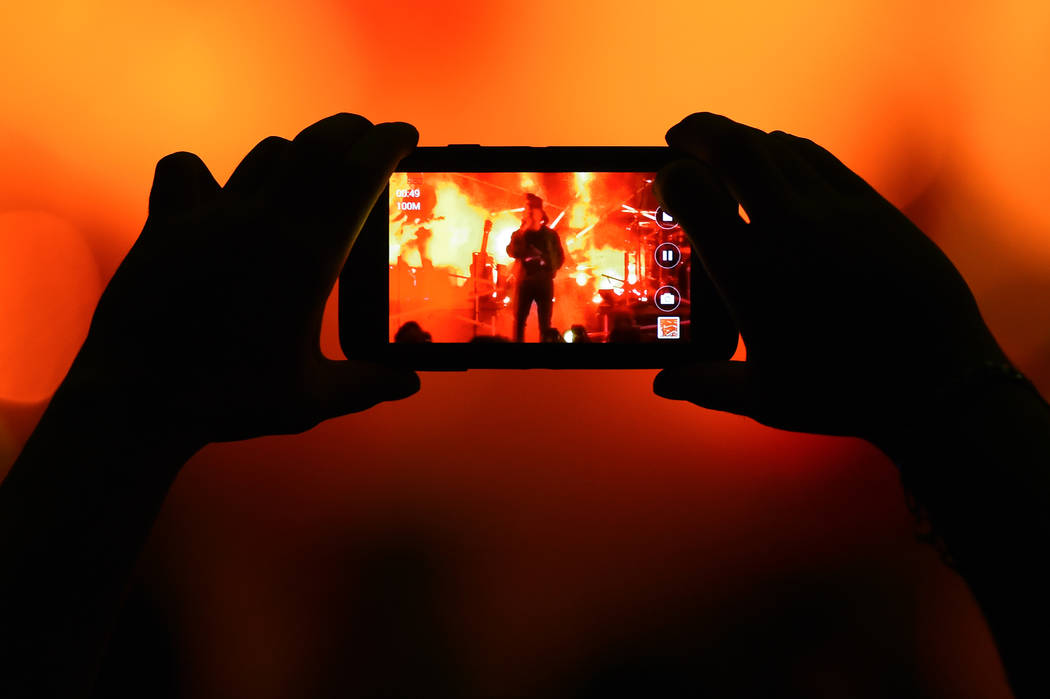3 myths you believe about music and why they’re wrong
Forget about that Discovery Channel show, real myth busting is about more than figuring out if Jimmy Hoffa is buried under Giants Stadium or whether you can get zapped unconscious by whizzing on an electric fence.
It extends to these parts as well.
With this in mind, let’s bust a few musical myths:
Myth No. 1: Concert tickets are overpriced
This is the biggest complaint I hear from folks, but the opposite is true: It’s not that tickets are overpriced these days, it’s that they were underpriced for decades and a market correction has occurred.
The reason such a robust secondary market existed in the past was that scalpers could buy tickets at face value and then sell them at double or triple the cost — if not more for the best seats. That’s the very definition of something being underpriced.
Bands got tired of ticket resellers making money that should have gone to them. So nowadays, not only are tickets as a whole priced higher, but the best seats carry such a high premium that there’s little money to be made on their resale, and the revenue stays in-house — where it belongs.
Consumers may not like it, understandably, but this is the market speaking, and the current system is much more equitable for the artist.
In Vegas, we feel the price increase more than most markets. That’s because we get to see acts such as Nine Inch Nails, Foo Fighters and Tool, who normally sell out arenas, in much smaller rooms. In turn, the large fees those bands command are spread among a much smaller pool of patrons. That makes tickets that much more expensive.
The flip side is, we get to see these bands in a much more up-close-and-personal environment than, say, those poor, poor souls in Buffalo. And we don’t live in Buffalo. Now that’s a win-win.
Myth No. 2: Streaming hurts musicians
You can’t lose what you never had. This is the most basic way of explaining why streaming doesn’t negatively affect the vast majority of artists’ revenue streams from album sales.
How so? Because those revenue streams have only existed for the 5 percent of major label acts capable of selling enough records to recoup the costs of making and promoting said album.
For the other 95 percent of artists, record sales — from a purely business standpoint — have been primarily a means of driving income in other avenues, namely concert ticket and merchandise sales.
It’s true that streaming doesn’t raise much money for all but the biggest artists, generating 17 to 22 cents per 100 streams of a song on average. But considering how little artists have traditionally made from the sale of their music, not much is lost and plenty can be gained: Namely, the widespread exposure that streaming can provide.
Developing new fans this way can translate to increased ticket and merch sales, where the profit margins are much more in the artist’s favor. It can also reduce the power that record labels have traditionally had over artists.
In short, streaming isn’t hurting musicians, it’s emancipating them.
Myth No. 3: You aren’t “in the moment” when shooting video/taking pictures on your cellphone during a show
Of course, there’s a common-sense decorum to be followed here: Don’t be the guy up front who holds a hubcap-sized tablet in the air the whole show filming every hair flip and tongue wag (in this hypothetical, we’re at a Winger gig).
But really, by now, how is someone snapping shots on a cellphone during a show that big of a deal?
The most frequently voiced complaint is that somehow you’re not “in the moment” when doing so. Why? Because you’re momentarily viewing the concert on a screen?
If you’re at a show where video screens are showing the performance and you watch portions of it that way, are you not in the moment? Does the size of the screen dictate whether you’re paying attention?
Being in the moment can represent different things to different people. You get to decide what it means to you, not the singer for Slipknot.
Contact Jason Bracelin at jbracelin@reviewjournal.com or 702-383-0476. Follow @JasonBracelin on Twitter.




























